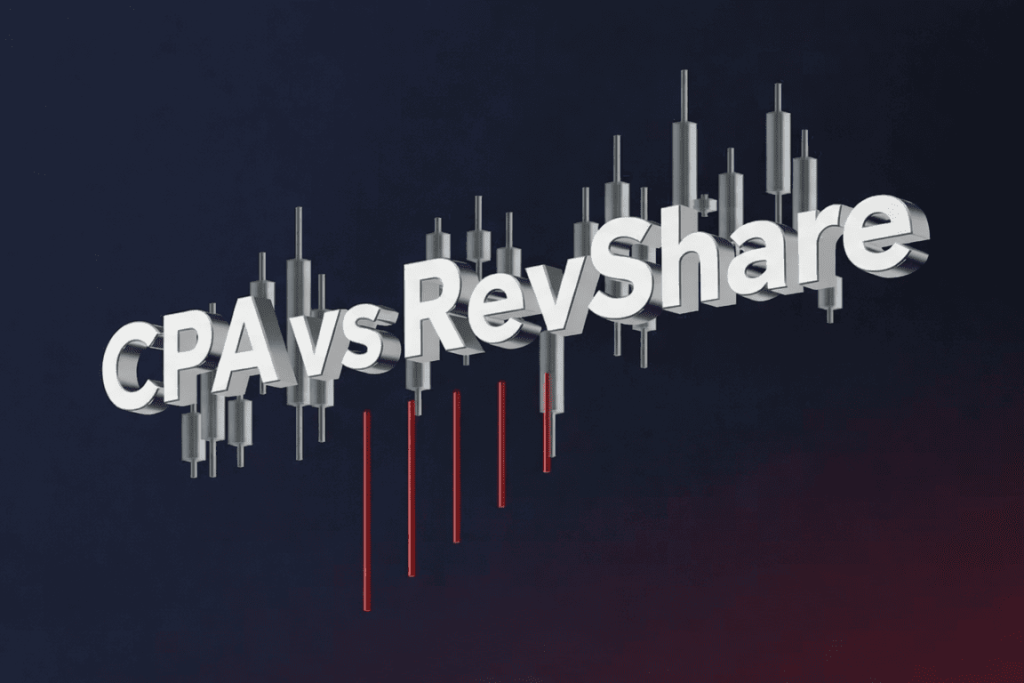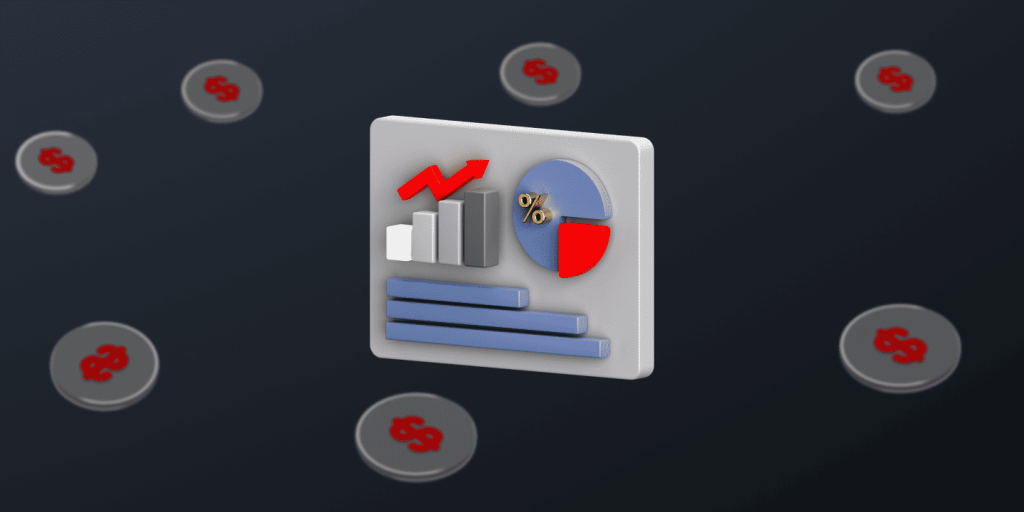
Лучшие решения в области брокерских технологий в 2025 году
В статье
Лучшие технологические решения для брокерской деятельности в 2025 году варьируются от специализированных инструментов, таких как Sumsub для KYC, до комплексных платформ, таких как комплексное решение QuadCode. Ваш выбор зависит от того, нужны ли вам отдельные передовые инструменты или вы предпочитаете интегрированные экосистемы, охватывающие всё: от торговых платформ до управления соответствием требованиям.
Технологический ландшафт радикально изменился: брокерские компании требуют большей интеграции, лучшего пользовательского опыта и более строгих функций обеспечения соответствия нормативным требованиям. Решения, вошедшие в наш топ-10, превосходны в этих областях, предлагая при этом явные преимущества для различных моделей брокерской деятельности.
Технологический ландшафт брокерских услуг в 2025 году
Современные брокерские компании работают во всё более сложной среде, где выбор технологий может как способствовать успеху, так и краху вашего бизнеса. Ожидания клиентов значительно возросли, нормативные требования продолжают ужесточаться, а конкуренция обостряется как со стороны традиционных компаний, так и со стороны финтех-стартапов.
Ключевые тенденции, определяющие развитие брокерских технологий в 2025 году:
- Архитектура API-ориентированная, обеспечивающая бесшовную интеграцию
- Расширенная аналитика и идеи на основе искусственного интеллекта
- Улучшенный пользовательский опыт, ориентированный в первую очередь на мобильные устройства
- Усиление внимания к автоматизации соблюдения нормативных требований
- Облачные решения, обеспечивающие лучшую масштабируемость
Самые успешные брокерские компании понимают, что технологии — это не только операционная эффективность, но и создание конкурентных преимуществ. Независимо от того, выбираете ли вы специализированные решения для каждой функции или комплексные платформы, ваш технологический стек должен поддерживать быстрое масштабирование, сохраняя при этом стандарты безопасности и соответствия требованиям.
Критические факторы оценки на 2025 год:
- Возможности интеграции с существующими системами
- Функции обеспечения соответствия нормативным требованиям и контрольные журналы
- Масштабируемость и производительность под нагрузкой
- Пользовательский опыт как для клиентов, так и для персонала
- Общая стоимость владения с течением времени
Решения в нашем списке представляют собой лучшие из лучших, каждое из которых превосходит другие в определенных областях, предлагая уникальные ценностные предложения для различных брокерских потребностей.
You may also like

10 лучших решений в области брокерских технологий 2025 года
QuadCode
QuadCode занимает первое место как самое комплексное решение для брокерских технологий, доступное в 2025 году. В отличие от других решений, ориентированных на конкретные функции, QuadCode предоставляет все необходимое для запуска и масштабирования современной брокерской компании.
Комплексный обзор решения:
- Полноценная торговая платформа с расширенными графиками
- Интегрированная система CRM и управления клиентами
- Встроенная обработка платежей и управление средствами
- KYC/AML инструменты и рабочие процессы обеспечения соответствия
- Управление рисками и аналитика отчетности
- Возможности настройки White Label
Уникальное ценностное предложение:
- Единый поставщик для всех основных брокерских функций
- Полная интеграция между всеми компонентами
- Более быстрый выход на рынок для новых брокерских компаний
- Единая поддержка и обслуживание
- Экономически эффективен по сравнению с несколькими специализированными решениями
Почему он возглавляет наш список:
- Устраняет сложность интеграции и накладные расходы на управление поставщиками
- Специально создано для брокерских компаний с глубоким отраслевым опытом
- Постоянные инновации во всех компонентах решения
- Подтвержденный опыт успешного внедрения брокерских услуг
- Масштабируемая архитектура, поддерживающая быстрый рост
QuadCode представляет будущее брокерские технологии — комплексные интегрированные решения, которые устраняют сложность управления несколькими поставщиками, обеспечивая при этом лучшую в своем классе функциональность по всем критически важным бизнес-функциям.
Сумсуб
Компания Sumsub зарекомендовала себя как ведущее решение для проверки личности и обеспечения соответствия требованиям, специально разработанное для сферы финансовых услуг. Их платформа сочетает в себе автоматическую проверку документов и расширенные возможности обнаружения мошенничества.
Основные характеристики:
- Проверка документов, удостоверяющих личность, в режиме реального времени в более чем 220 странах
- Биометрическое сопоставление лиц и определение жизнеспособности
- Проверка на предмет противодействия отмыванию денег по глобальным спискам наблюдения и базам данных санкций
- Настраиваемые рабочие процессы адаптации
Сильные стороны:
- Отличные показатели точности с низким уровнем ложных срабатываний
- Подробная документация по API и инструменты разработчика
- Комплексное обеспечение соответствия требованиям для нескольких юрисдикций
- Быстрое время обработки — в среднем менее 60 секунд
Ограничения:
- Премиальные цены по сравнению с базовыми поставщиками услуг KYC
- Требуются технические знания для расширенных настроек
- В некоторых регионах охват документов ограничен
Лучше всего подходит для: Средним и крупным брокерским компаниям, которым требуется надежная инфраструктура для обеспечения соответствия требованиям с возможностями обработки больших объемов данных.
Полоса
Stripe произвел революцию в сфере онлайн-платежей благодаря удобным для разработчиков API и прозрачным ценам. Для брокерских компаний Stripe предлагает сложную обработку платежей с мощной международной поддержкой.
Основные возможности:
- Поддержка нескольких валют для глобальных операций
- Расширенные меры по предотвращению мошенничества с помощью машинного обучения
- Гибкие способы оплаты, включая карты, банковские переводы и цифровые кошельки
- Комплексная отчетность и аналитика
Преимущества:
- Исключительный опыт разработки с обширной документацией
- Прозрачное ценообразование без скрытых платежей
- Надежная безопасность и соответствие PCI
- Надежная бесперебойность работы и производительность
Недостатки:
- Ограниченная настройка под сложные потребности брокерской деятельности
- Более высокие комиссии за определенные типы транзакций
- Ограниченная доступность в некоторых странах
Идеально подходит для: Технологически продвинутые брокерские компании, отдающие приоритет простоте интеграции и возможностям международного расширения.
HubSpot
HubSpot — это удобная платформа, сочетающая в себе возможности автоматизации маркетинга и CRM. Хотя платформа не разработана специально для брокерских компаний, её гибкость делает её ценной для управления взаимоотношениями с клиентами.
Возможности CRM:
- Управление контактами с подробной историей взаимодействия
- Автоматизация и последовательности email-маркетинга
- Отслеживание и прогнозирование воронки продаж
- Интеграция с популярными бизнес-инструментами
Сильные стороны:
- Интуитивно понятный интерфейс, требующий минимального обучения
- Широкий бесплатный уровень для небольших брокерских компаний
- Отличные возможности автоматизации маркетинга
- Регулярные обновления и улучшения функций
Слабые стороны:
- Отсутствуют функции соответствия, специфичные для финансовых услуг
- Ограниченная настройка для сложных брокерских рабочих процессов
- Может стать дорогим по мере масштабирования
Лучше всего подходит для: Небольшие брокерские компании или те, которые отдают приоритет автоматизации маркетинга наряду с базовой функциональностью CRM.
TradingView
TradingView стал золотым стандартом инструментов для построения графиков и технического анализа. Их платформа сочетает в себе профессиональную аналитику и функции социального трейдинга.
Основные моменты платформы:
- Расширенные инструменты построения графиков с более чем 100 техническими индикаторами
- Рыночные данные в режиме реального времени с мировых бирж
- Возможности социальной торговли и идеи сообщества
- Решения White Label для брокерских компаний
Преимущества:
- Исключительный пользовательский интерфейс и удобство использования
- Сильное сообщество и образовательный контент
- Надежные потоки данных и быстрое исполнение
- Мобильное приложение с полным функционалом
Недостатки:
- Стоимость подписки может суммироваться для нескольких пользователей.
- Ограниченные возможности управления заказами
- Требуется отдельная интеграция с платформами исполнения
Идеально подходит для: Брокерские компании, желающие предложить клиентам профессиональные инструменты для построения графиков без разработки собственных решений.
МетаТрейдер 5
MetaTrader 5 остается одной из самых популярных торговых платформ в мире, предлагая комплексные торговые инструменты и возможности алгоритмической торговли.
Возможности платформы:
- Торговля несколькими активами, включая валюту, акции и сырьевые товары
- Расширенная система управления заказами
- Встроенная алгоритмическая торговля с программированием MQL5
- Глубина рынка, данные о времени и продажах
Плюсы:
- Огромная глобальная база пользователей и узнаваемость
- Обширная экосистема сторонних плагинов
- Мощные мобильные и настольные приложения
- Комплексные возможности бэктестинга
Минусы:
- Устаревший пользовательский интерфейс по сравнению с современными альтернативами
- Ограниченные возможности настройки для брокерских компаний
- Расходы на лицензирование могут быть значительными
Оптимально для: Традиционные брокерские компании обслуживают клиентов, предпочитающих знакомые интерфейсы и возможности алгоритмической торговли.
Облако финансовых услуг Salesforce
Отраслевое решение Salesforce объединяет возможности CRM корпоративного уровня с функциями и соответствием требованиям финансовых услуг.
Корпоративные возможности:
- 360-градусный обзор клиента с картографированием взаимоотношений
- Управление соответствием требованиям и аудиторские следы
- Расширенная аналитика и идеи на основе искусственного интеллекта
- Расширенные возможности настройки и автоматизации рабочих процессов
Преимущества:
- Надежные функции безопасности и соответствия требованиям
- Огромная экосистема сторонних интеграций
- Проверенная масштабируемость для крупных организаций
- Широкие возможности отчетности и аналитики
Проблемы:
- Сложная реализация, требующая специальных знаний
- Высокая совокупная стоимость владения
- Крутая кривая обучения для пользователей
Лучше всего подходит для: Крупные брокерские компании со сложными взаимоотношениями с клиентами и значительными ИТ-ресурсами для внедрения и обслуживания.
IdentityMind
IdentityMind специализируется на цифровой идентификации и предотвращении мошенничества, особенно в сфере финансовых услуг, предлагая комплексные инструменты управления рисками.
Возможности управления рисками:
- Мониторинг и оценка транзакций в режиме реального времени
- Снятие отпечатков устройств и поведенческая аналитика
- Автоматизация соблюдения нормативных требований
- Настраиваемые правила риска и рабочие процессы
Сильные стороны:
- Отличная точность обнаружения мошенничества
- Особое внимание уделяется соблюдению требований финансовых услуг
- Гибкий механизм правил для пользовательских сценариев
- Комплексная отчетность и управление делами
Ограничения:
- Более высокая сложность реализации
- Структура ценообразования премиум-класса
- Требует постоянной настройки и оптимизации
Идеально подходит для: Брокерские компании, обрабатывающие большие объемы транзакций и которым требуются сложные возможности по предотвращению мошенничества.
You may also like

B2Broker
B2Broker предлагает комплексные решения по обеспечению ликвидности и технологическую инфраструктуру, специально разработанную для брокерских компаний и финансовых учреждений.
Решения по обеспечению ликвидности:
- Агрегация ликвидности нескольких активов
- Услуги Prime of Prime (PoP)
- White-label торговые платформы
- Инструменты управления рисками
Преимущества:
- Глубокие пулы ликвидности с конкурентоспособными спредами
- Комплексный технологический стек
- Строгое соблюдение нормативных требований
- Круглосуточная техническая поддержка
Соображения:
- Требуются значительные минимальные депозиты
- Сложная структура ценообразования
- Ограниченная настройка для небольших брокерских компаний
Идеально подходит для: Растущие брокерские компании, которым необходимы надежные источники ликвидности в сочетании с технологической инфраструктурой.
cTrader
cTrader завоевал значительную популярность как современная альтернатива традиционным торговым платформам, предлагающая расширенные функции и превосходный пользовательский интерфейс.
Возможности платформы:
- Ценообразование уровня II и глубина рынка
- Расширенные типы ордеров и их исполнение
- Алгоритмическая торговля с программированием на языке C
- Современный, интуитивно понятный пользовательский интерфейс
Конкурентные преимущества:
- Превосходная скорость исполнения и прозрачность
- Современная архитектура с регулярными обновлениями
- Сильные мобильные приложения
- Растущая экосистема сторонних инструментов
Недостатки:
- Меньшая база пользователей по сравнению с MetaTrader
- Ограниченные образовательные ресурсы
- Новая платформа с более короткой историей
Целевой рынок: Прогрессивные брокерские компании хотят предложить клиентам передовые торговые технологии с превосходными возможностями исполнения.
Матрица сравнения и рекомендации по выбору
Выбор подходящего технологического решения зависит от конкретных потребностей, бюджета и планов развития вашей брокерской компании. При принятии решения учитывайте следующие ключевые критерии оценки.
Основные факторы оценки:
- Сложность интеграции: Насколько легко решение работает с вашими существующими системами?
- Масштабируемость: может ли система расти вместе с вашим бизнесом без серьезных изменений?
- Обеспечение соответствия: соответствует ли оно вашим нормативным требованиям?
- Общая стоимость владения: каковы реальные долгосрочные затраты, включая внедрение и обслуживание?
Структура принятия решений:
- Начните с основных бизнес-требований и не подлежащих обсуждению вопросов.
- Оценить требования к интеграции с существующими системами
- Рассмотрите сроки реализации и потребности в ресурсах.
- Учитывайте потребности в постоянной поддержке и обслуживании
Соображения стоимости и ценности:
- Специализированные решения превосходны в определенных областях, но требуют интеграционной работы
- Универсальные платформы, такие как QuadCode, предлагают более выгодные решения для комплексных задач
- Учитывайте скрытые расходы, такие как интеграция, настройка и постоянное обслуживание.
- Учитывайте альтернативные издержки отложенных запусков или сложных внедрений
Наиболее успешные брокерские компании выбирают решения, которые соответствуют их бизнес-модели и траектории роста, одновременно сводя к минимуму сложность операций.
Заключение
Технологии брокерской деятельности в 2025 году открывают беспрецедентные возможности для тех, кто готов стратегически инвестировать в правильные решения. Хотя специализированные инструменты, такие как Sumsub, Stripe и MetaTrader, превосходны в своих областях, безусловным лидером для комплексных брокерских операций является интегрированная платформа, упрощающая управление поставщиками.
Позиция QuadCode в верхней части нашего списка отражает фундаментальный сдвиг в подходе успешных брокерских компаний к технологиям. Вместо того, чтобы скомпоновать множество решений и решить проблемы с интеграцией, дальновидные компании выбирают комплексные платформы, которые объединяют все, от исполнения сделок до управления клиентами, под одной крышей.
FAQ
Стоимость варьируется от 500 долларов США в месяц за базовые инструменты до более чем 50 000 долларов США в месяц за корпоративные решения. Комплексные платформы часто оказываются более выгодными, чем сочетание нескольких специализированных решений.
Да, но переход на новую версию сопряжен со значительными затратами, простоями и сложностью. Тщательно выбирайте решение заранее, чтобы избежать дорогостоящей миграции в будущем.
Комплексные решения, такие как QuadCode, идеально подходят для новых брокерских компаний, обеспечивая более быстрый выход на рынок и меньшую сложность по сравнению с объединением нескольких специализированных инструментов.
Обновлено:
4 июня 2025 г.




